Recordings and Resources

ECHO Recordings and Resources
To access recordings, presentations and resources from our current or past ECHO programs, please go to our ECHO Program homepage to find links to each individual program.
Workshops and Webinar recordings
Webinar: Managing Addictive Disorders
This online education session addresses how to assess and manage patients with substance use disorders, when and how to escalate care and referral pathways.
Presenter:
- Dr Michael Findlay, Addiction Medicine Specialist, DASSA, SALHN, SA Health
Learning Outcomes:
- Recognise patients experiencing substance dependence and misuse.
- Design risk mitigation plans for patients presenting with substance misuse.
- Recall referral options for patients with complex substance misuse presentations
Click to view
Webinar: Nicotine Addiction, Smoking & Vaping Cessation
This is a recording of a webinar hosted by SAPMEA on Nicotine addiction, Smoking & Vaping Cessation. This presentation will help participants to evaluate smokers or vapers who may require assistance in quitting. Additionally, it will enhance practitioners' confidence in their skills to support individuals in managing their addictions and achieving cessation.
Presenter: Professor Renee Bittoun, Specialist in Nicotine Treatment
Learning outcomes:
- Outline nicotine addiction and withdrawals
- Assess a smoker or vaper who may need help to quit
- Debunk myths regarding treatment and contraindications
- Discuss drug interactions with smoking and with cessation
- Develop confidence in helping smokers and vapers “manage” their addiction
- Develop confidence in helping adult and adolescent vapers quit
Ethical and Legal Considerations 2 Part (2)
Held on the 28th November 2024
The aim of this education webinar mini-series is to equip general practitioners (GPs) with the knowledge and skills necessary for effectively managing and, when necessary, concluding the doctor-patient relationship in general practice.
Click to viewWebinar: Nutrition for the Lifecycle
This webinar recording will provide you with a comprehensive understanding of your patients' nutritional requirements throughout various life stages. The session will also highlight common nutritional red flags and guide you on how to identify suitable referral criteria for dietitian consultations.
Facilitators:
- Kathleen Van Eyk (Accredited Practicing Dietitian, DA)
Lauren Ervine (Accredited Practicing Dietitian, DA)
Learning outcomes:
- Develop a comprehensive understanding of nutritional needs, including macro and micronutrient guidelines tailored to specific populations.
- Acquire essential insights into Nutrition across various life stages.
- Recognise common nutritional warning signs and determine appropriate referral criteria for dietitian consultation.
- Discuss the components and processes involved in a standard Dietitian consultation
Suicide and Unemployment in General Practice Webinar
Held on the 26th November 2024
The aim of this webinar is to update GPs on the management of Suicide Prevention and unemployment in General Practice.
Click to viewFamily Matters Enhancing Therapy Through Inclusion
This interactive workshop that will provide beneficial and valuable understanding on GPs and healthcare professional on their role to understand the complexities of family dynamics and their influence on therapy outcomes across various age groups in the Australian healthcare setting.
Click to viewWeight Management Webinar
Held on the 4th November 2024
This interactive workshop aims to educate participants on evidence-based interventions for overweight and obese patients.
Click to viewCVD Webinar
Held on Wednesday 23rd October
This workshop will provide an update on cardiovascular risk assessment and lipid management.
Click to viewEthical and Legal Considerations Part 2 Series (1)
Held on Thursday, 24th October
The aim of this education webinar mini-series is to equip general practitioners (GPs) with the knowledge and skills necessary for effectively managing and, when necessary, concluding the doctor-patient relationship in general practice.
Click to viewUnlocking success: Building a sustainable and thriving rural general practice (Webinar Recording)
Held on Wednesday, 4th September
This webinar offers you the chance to discover the key strategies employed by
successful rural practices, enabling them to thrive against the odds in rural and
remote locations.
Childhood Immuisation Schedule (Webinar Recording)
Held on Tuesday, 12th August
This workshop will guide GPs and general practice teams through the fundamentals of catch-up vaccinations, vaccine eligibility, vaccine doses and intervals between doses.
Click to viewOsteoporosis Management in General Practice (Webinar)
Held on Tuesday, 13th August
The aim of this webinar is to update GPs on the management of Osteoporosis in General Practice.
No recording available |
- Review assessment and diagnosis of osteoporosis including the use and monitoring of bone remodeling marker CTX.
- Demonstrate an understanding of the different anti-resorptive pharmacological therapies to safely reduce fractures.
- Identify key adverse events including osteonecrosis of the jaw and atypical fractures.
- Communicate effectively with patients the life-long nature of osteoporosis treatment, implications of ceasing therapy and the importance of bone loss monitoring.
Skin Cancer Workshop (Webinar Recording)
Upskill your understanding of dermatoscopes, the clinical and dermatoscopic features of skin cancer, procedural techniques for treatment and the use of non-surgical options in skin cancer management.
Click to viewMedico Legal Responsibilities in work injuries
Held on Thursday, 27th June
The aim of this interactive workshop will provide beneficial and valuable understanding on GPs and healthcare professional on their role in the workers' compensation process and knowledge and tools necessary to navigate the medico-legal landscape effectively.
- Review the role of GPs in the workers' compensation process and their responsibilities in providing accurate and timely medical information.
- Understand Compensability of injuries/Illness under the Return to Work Act 2014
- Overview of the process and role of Independent Medical Examinations (IMEs) and Whole Person Impairment (WPI)
- Review the concept of MMI and its implications for workers’ compensation claims.
ECG Interpretation Webniar
Held on Monday, 17th June
The aim of this interactive webinar was to update GPs on the assessment and management of ECG interpretation. Dr Herman Chua provided us with extensive knowledge and practical tools to accurately recognise the range of ECG manifestations.
The learning outcomes:
- Understands the key concepts of ECG interpretations in ACS.
- Recognised the range of ECG manifestations of OMI (Occlusion Myocardial Infarction)
Carrying the Weight of Mental Health
Held on Monday, 20th May
This workshop addressed the prevalence of weight-related issues amongst individuals living with mental health conditions, highlighting the significant impact, it can have on overall wellbeing and explored evidence-based approaches to managing weight in this population, offering practical tools and techniques
tailored to the unique challenges faced.
Learning Outcomes:
- Understand the prevalence of weight-related issues within mental health populations and recognise the impact on overall wellbeing.
- Explore evidence-based strategies and interventions for weight management in people living with mental ill health.
- Recognise the importance of interdisciplinary collaboration and communication in providing holistic care for individuals with mental health conditions and weight-related concerns.
- Evaluate and tailor weight management plans for individuals with mental health conditions
Determining Physical Capacity
Held on Thursday 4th April.
This interactive workshop, funded by ReturnToWorkSA and facilitated by Dr Thanh Ha, Dr Cassandra Zaina and Fiona Belton, provided us with extensive knowledge and practical tools to accurately evaluate a person's physical and functional capabilities post-injury, and considerations for GPs when recommending modified duties upon return to work.
Learning outcomes:
- Utilise a variety of assessment tools to accurately determine an individual's work capacity, demonstrating understanding of their interpretation and application.
- Review the process of completing the ReturnToWorkSA work capacity certificate, ensuring compliance with legal and ethical standards.
- Conduct ongoing reviews of work capacity, enabling GPs to adapt interventions and support measures to optimise return-to-work outcomes for individuals undergoing rehabilitation.
Occupational Dust Exposures Clinical pathways for silicosis & dust disease in SA
Held on Tuesday 13th February.
Our expert panel explains about identification, diagnosis, management and referral pathways for silicosis and dust disease in general practice.
Learning outcomes:
-Identify individuals at risk of silicosis and dust-related disease along with understanding their health implications.
-Review treatment options for the management of patients suffering from a dust-related disorder in a general practice setting.
-Recognise the available and appropriate referral pathways for individuals diagnosed with silicosis and other dust-related diseases.
Check the workshop's resources here:
Click to viewWork Injuries - Making the system work for you and your patients
Held on Tuesday 21st November
In partnership with RTWSA, Occupational specialists Dr Mary Wyatt and Dr Thanh Ha discussed how to make the work injury scheme work best for doctors and their patients.
Learning outcomes:
- Identify practical strategies to apply a biopsychosocial framework to injury management.
- Demonstrate how effective collaboration with multi-disciplinary teams can optimise care for work injured patients.
- Apply the principles of the Australasian Faculty of Occupational and Environmental Medicine’s (AFOEM) It Pays to Care Policy into practice.
Prevention and remission of type 2 diabetes: intervention studies
Held on Wednesday 8th November
In partnership with the Northern Community of Health & Research Foundation (NCHRF) this webinar hosted international guest presenter, Professor Ian MacDonald from Nottingham UK to share what is happening to diabetes internationally and the intervention studies on prevention and remission of type 2 diabetes.
Learning outcomes:
- Understand strategies to reduce the risk of developing diabetes.
- Explore diabetes remission and the methods by which it can be accomplished.
- Examine how metabolism, obesity, and lifestyle choices interplay in the prevention and remission of diabetes.
- Explore key messages for GPs to communicate to patients regarding diabetes prevention and remission.

First Nations Wisdom in Health Care: Yarning as best practice in your consulting room
Held on 30th October 2023
In partnership with the South Australian Office of the Chief Psychiatrist and Adelaide PHN, this workshops is the second in a series of workshops on key mental health topics.
Learning outcomes:
- Understand the role of traditional healing approaches in treating health conditions in the First Nations community
- Recognise the influence of a person’s ‘story’ on their health presentation and the approach to healthcare
- Identify strategies to integrate traditional and western approaches to care
WARNING: Aboriginal and Torres Strait Islander viewers are warned that the following video contains images of deceased persons.
Click to View
Gender Identity - enhancing gender affirming mental healthcare
Held on 3rd July 2023
In partnership with the South Australian Office of the Chief Psychiatrist and Adelaide PHN, this workshops is the second in a series of workshops on key mental health topics.
Learning outcomes:
- Understand barriers of care for people with gender diversity.
- Outline team-based approaches to care for a person who is gender diverse.
- Identify strategies to support a gender diverse person and their families across a life span (initial conversation, available referral pathways, resources).
- Identify mental health concerns in a gender diverse community.
Enhancing physical healthcare in mental illness
Held on 27th March 2023
In partnership with the South Australian Office of the Chief Psychiatrist and Adelaide PHN, this workshops is the first in a series of workshops on key mental health topics.
Learning outcomes:
- Identify physical health risks contributing to greater morbidity and mortality in people living with mental illness.
- Describe best practice screening and routine monitoring practices in people living with mental illness.
- Implement management interventions to improve physical health and reduce early mortality among people living with mental illness, particularly in people with concurrent diabetes and CVD.
- Outline team-based approaches to shared care and the coordination of mental health and physical health care.

Dementia Demystified
Held on 11th November 2021
The aim of this education session is to heighten awareness of health professionals and their role in the detection, diagnosis and management of dementia.
At the end of the webinar, the participant will be able to:
- Outline the difficulty in diagnosing and managing dementia despite it being a common cause of death
- Apply the Inclusion Criteria Framework and Exclusion Criteria Framework in assessing patients for a possible diagnosis of Alzheimer’s Dementia
- Apply the Domains Framework to recognise features other than memory loss in people with dementia
- Recognise the stages of disease and management with respect to the theme of dignity and patient-centred care

Pride of your Practice (LGBTIQ)
Held on 4th November 2021
The aim of this education session is to work towards being LGBTIQ inclusive in your practice / organisation and celebrate diversity.
At the end of the webinar participant will:
- Demonstrate an understanding of different sexual orientations
- Development of the skills to create a safe and inclusive environment in your practice for LGBTIQ community
- Learn how to develop inclusive and respectful language when working with LGBTIQ community
- Recognise how stigma can impact on the health and wellbeing of the LGBTIQ community
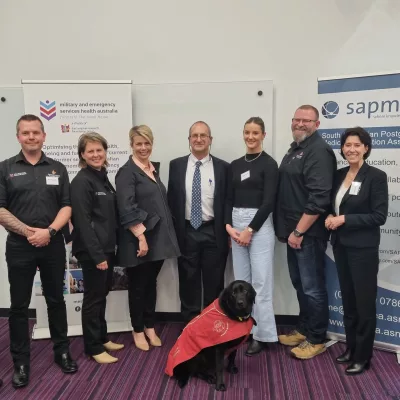
Working with Military and Emergency Services and their families
Held on 14th August 2021
Presented by a passionate collection of experts from across Australia. Presentation topics and speakers are listed below:
4:21 - 35:18 Professor Miranda Van Hooff - Service populations – who is affected
35:18:59 – 1:09:59 Ms Karen May- Service populations – who is affected (continued)
1:17:13 – 1:53:59 LT COL Dr Jon Lane - Military and Emergency Service Culture as it relates to treatment
1:54:21 – 2:32:30 Dr Denise Keenan - Working with psychological issues in first responders
2:33:36 – 2:56:28 CDRE Dr Duncan Wallace
2:57:40 – 3:02:15 and continues from 3:30:51 - 4:06:55 Dr Nick Ford - Improving mental health assessment of military, veterans and Emergency Service personnel
(3:02:15 – 3:30:51 LUNCH)
4:07:17 - 4:41:23 - Ms Jacinta Brinsley - Exercise Physiology
4:41:30 - 5:12:07 - Matt Newlands - Lived Experience, health access and effective programs
This Seminar is for GPs and other health professionals to learn insights and experience in how to optimise mental health, wellbeing and function of current and former military and emergency services personnel. Proudly sponsored by Military and Emergency Services Health Australia (mesha.org.au).
Click to view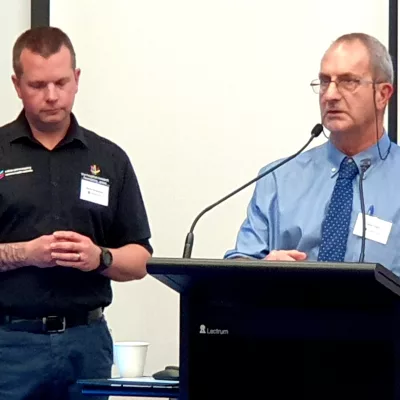
Managing mental health in military, veterans and emergency responders
Held on 8th July 2021
Proudly sponsored by Military and Emergency Services Health Australia (mesha.org.au) this workshop is for GPs providing care to military, veterans and/or emergency responders.
Learn about the unique challenges faced by this patient cohort, available support programs and new and developing resources.
Presented by: Dr Nick Ford, Senior Clinical Lecturer, Dept of Psychiatry, University of Adelaide & Matt Newlands, Lived Experience Stakeholder Engagement Manager, Program Coordinator, MESHA
Click to view
CVD risk assessment: from cholesterol screening to deprescribing statins
Held on 22nd June 2021
In this webinar Dr Justin Ardill (Cardiologist) investigates how to perform and interpret cholesterol screening and further clarify prescription of HMG-CoA Reductase inhibitors (statins) with reference to PBS guidelines. Timing and choice of appropriate investigations to reduce the risk of vascular events and deprescribing in patients with limited life expectancy is examined.
Learning outcomes:
- Interpret cholesterol screening tests to assess cardiovascular disease risk.
- Establish which investigation to choose, when and for which patient.
- Examine how to prescribe statins to reduce the risk of vascular events

Panel-led case discussion: Complex Depression and Suicide
Held on 3rd October 2020
This education session is a part of a series of webinars designed to be delivered as panel-led case discussions to promote peer learning. This session aims to unpack curly and complex COPD patient presentations and to give health professionals the chance to share and learn from the expertise and experience of peers and expert panellists.
Learning outcomes:
• Discuss the diagnosis Depression
• Discuss the treatment of depression
• Examine the referral pathways for a multi-disciplinary approach to depression

Panel-led case discussions: Complex diabetes
Held on 8th October 2020
This education session is a part of a series of webinars designed to be delivered as panel-led case discussions to promote peer learning. These sessions aim to unpack curly and complex patient presentations and to give health professionals the chance to share and learn from the expertise and experience of peers and expert panellists.
Learning outcomes:
• Discuss the diagnosis Diabetes
• Discuss the treatment of Diabetes
• Examine the referral pathways for a multi-disciplinary approach to Diabetes

Blinded by Sugar
Held on 1st October 2020
Blinded By Sugar - the toxic impact of sugar and the rise of type 2 diabetes.
This session tells the story of Neil Hansell, a man who woke one morning blind in both eyes due to neglect of his diabetes. In this confronting 20-minute keynote presentation, Dr Muecke discusses why type 2 diabetes is a growing worldwide epidemic and explores a number of strategies to curb the toxic impact of sugar on our health and on our world.
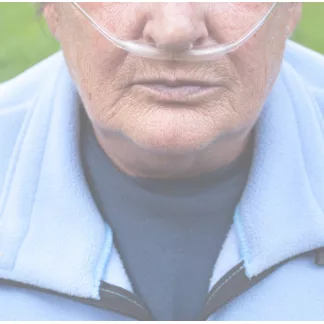
Panel-led case discussion: The complex COPD patient
Held on 3rd September 2020
This education session is a part of a series of webinars designed to be delivered as panel-led case discussions to promote peer learning. This session aims to unpack curly and complex COPD patient presentations and to give health professionals the chance to share and learn from the expertise and experience of peers and expert panellists.
Learning outcomes:
• Discuss the diagnosis COPD
• Discuss the treatment of COPD
• Examine the referral pathways for a multi-disciplinary approach to COPD

Depression and the use of alcohol and illicit drugs
Held on 16th July 2020
By the end of the education, GPs should feel more confident when identifying, communicating with and managing patients with mental health issues and substance use behaviours.
Learning outcomes:
• Recognise the key characteristics of depression
• Discuss the most appropriate harm minimisation response for people who have an addition to alcohol and other drugs
• Describe the multidisciplinary treatment options available in South Australia for addiction and the appropriate referral process
• Examine appropriate referrals for patients who use illicit drugs
Domestic and Family Violence
Held on 14th July 2020
One of the darker side effects of Australia being in lockdown during the COVID-19 pandemic is the rise in the number of people ringing domestic violence help lines. People and families are under a financial pressure and are feeling the effects of separation from a support network.
Learning outcomes:
• Identify signs and indications of abuse
• Discuss the nature, severity, and impact of domestic violence
• Discuss how to approach enquiring about domestic or family violence
• Identify resources and support for families effected by domestic violence
Please note: Due to technical issues this webinar is not recorded. However please find the powerpoint presentation available in the link below.
Gestational Diabetes Mellitus
Held on 9th July 2020
Early screening, diagnosis and management of gestational diabetes mellitus (GDM) is important to prevent or reduce complications. A variety of guidelines exists, which assist Nurses, Aboriginal Health Workers and Midwives in the screening, diagnosis and management of GDM. This webinar is intended to increase the knowledge and confidence in caring for woman with GDM.
Learning outcomes:
• Outline preconception counselling
• Evaluate early pregnancy testing and management
• Plan post-natal follow-up testing and management

Immunisation Update - Webinar Recording
Held on 25th June 2020
All Immunisation Providers - GP's, Nurses and Pharmacists were invited to attend this Immunisation update.
National Immunisation Program (NIP) schedule changes are from 1 July 2020. There are changes to the immunisation schedule designed to improve protection against meningococcal and pneumococcal disease.
The changes are being implemented following recommendations from the Australian Technical Advisory Group on Immunisation (ATAGI) and other clinical experts.
• Changes to the NIP meningococcal vaccination schedule.
• Changes to the NIP pneumococcal vaccination schedule.
Please note: Unfortunately, there were some sound issues at different times during the webinar. Please accept our apologies. To ensure providers do not miss the information, please click here to view Angela's points.
Click to view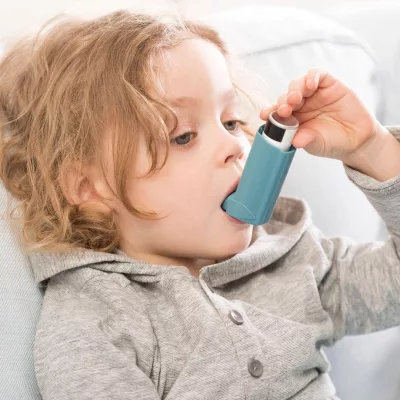
Chronic Asthma in Children - Webinar Recording
Held on 18th June 2020
This webinar provides health professionals with clarity on the guidelines for the diagnosis and treatment of paediatric asthma.
Learning outcomes:
• Analysing the symptoms and clinical features suggesting an asthma diagnosis
• Discussing a stepped approach to adjusting asthma medication in children
• Identifying systems in practices and prioritising areas of improving asthma management for children

Medication Management - Webinar Recording
Held on 15th June 2020
This webinar was for general practice nurses, outlining diabetes pathophysiology, type 2 diabetes & diabetes pathway, managing glycaemia, medications in type 2 diabetes education and self-management, resources and case studies.
Learning outcomes:
• Describe the natural progression for type 2 diabetes
• Develop an appreciation of the range of type 2 diabetes medications
• Identify patient education needs based on the type 2 diabetes education pathway
• Describe the referral pathways for medication education and individualised action plans
• Self-appraise own scope of practice
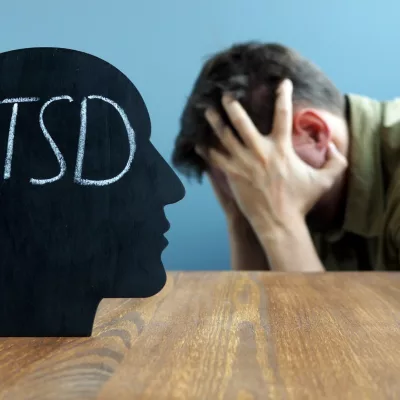
Time to Heal Post Traumatic Stress Disorder - Webinar Recording
Held on 11th June 2020
Post traumatic stress disorder (PTSD) is a mental health condition that may occur after a traumatic event. Most Australians have been exposed to a traumatic events that have the potential to cause PTSD or other mental health problems.
Learning outcomes:
• The assessment and management processes of people with PTSD
• The role of the GP in management of people with PTSD
• Identifying the referral pathways available for patients presenting with PTSD to ensure patient safety

GP Management of Headaches - Webinar Recording
Held on 14th May 2020
This GP focused webinar presented by Dr. Zhuang BSc BMBS(Hons) FRACP Neurologist Flinders Medical Centre covered the examination of migraines, medication overuse, tension type headache, and cluster headache.
Learning outcomes:
• Examine the clinical features of migraine, medication overuse headache, tension type headache and cluster headache
• Identify options within general practice to manage the primary headache
• Recognise the appropriate referral pathways when red flags of secondary headaches are identified

Dealing with Difficult Patients - Webinar Recording
Held on 28th April 2020
This webinar was created for frontline staff dealing with patients, either in person or over the phone, including receptionists, clerical staff in primary practice, pharmacy assistants and dispensary staff.
The webinar addresses effective communication and strategies for responding to difficult and anxious patients during this critical time including:
● Barriers to effective communication ● Risk Assessment ● Removing denial and making assumptions about personal safety ● Accountability ● Principles of cause and effect ● Focused imagery ● Methods of effective verbal and non-verbal communication ● Understanding the primal triggers of human behaviour ● Avoiding resistance
Click to view
The dilemma of polypharmacy in Dementia
The prevalence of dementia is raising as a result of an ageing population. Dementia is a common condition, on average, general practitioner in Australia will see three new cases each year. The general practitioner's role includes recognising early dementia, undertaking assessments to confirm the diagnosis and managing the disease. Prescribing for elderly patients with dementia can be challenging because of the changing needs associated with cognitive decline and related behavioural and psychological symptoms. Prescribing unnecessary or inappropriate medications in elderly patients with dementia may further contribute to their decline. Clinical decision-making regarding prescription medications for patients with dementia and with other co-existing health conditions need to balance the potential health benefits and risks.
Learning outcomes:
|



